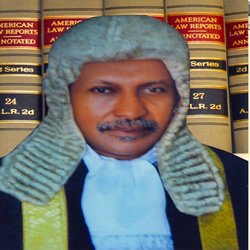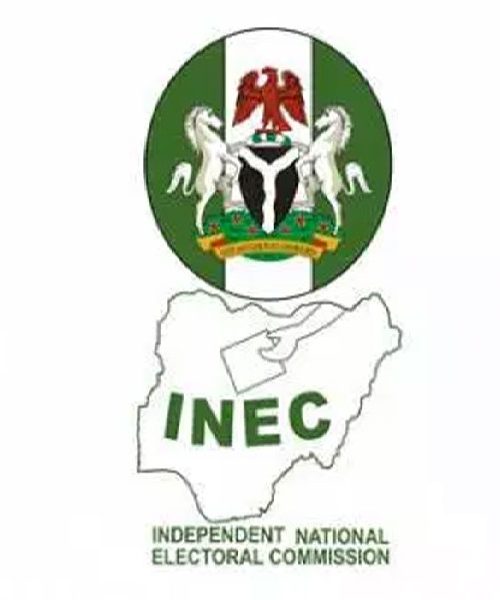Indigenous Peoples Within Nigeria Oppose Proposed Water Resources Bill
Written by Admin on September 29, 2022
Group under the aegis of Indigenous People Within Nigeria on Friday came out in their thousands to protest the proposed water resources Bill which seeks to establish a regulatory framework for trans boundary water resources in Nigeria and to provide for the equitable and sustainable development, management, use and conservation of Nigeria’s inter-state surface water and groundwater resources and for related matters, is illegal, unlawful and unconstitutional.
The group working in conjunction with Malcolm Omirhobo Foundation made up of mostly indigenes of Niger Delta, Benue and other tribal extraction in Nigeria argued in a communiqué that under a Federal system of government like Nigeria, Federal Government do not have absolute sovereign authority over water, adding that the Federating States have considerable authority to establish and implement water laws, policies, and programs suited to their priority water concerns.
“The states are by virtue of the laws of Nigeria the owners of their land, rivers, lakes, ponds, oxbow lakes, meanders and prominent levees, large freshwater swamps, mangroves, inland waterways, surface and ground water within their various States which is being vested on the governors of their States to hold in trust for them and cannot be acceded to the powers to the minister under the proposed National Water Resources Bill to issue licenses for drilling boreholes, fishing, irrigation, commercial use, grazing, recreation or any other,” the communiqué explained.
The Group which argued that the propose National Water Resources Bill is a further centralization and undue concentration of powers on the Federal Government of Nigeria instead of the decentralization and devolution of powers disclosed that if the National Water Resources Bill is passed into law, it will give Federal Government exclusive dominance and control on waterways which will further impoverish Nigerians in riverine states who depend on waterways to generate revenue internally.
“If the National Water Resources Bill is passed into law, it will take away the customary rights of the indigenous peoples within Nigeria to their God’s given water, their inheritance, history, identity, culture, tradition and religion,” the communiqué stressed.
They further argued that although the National Assembly may have the powers to pass laws on water from such sources as may be declared by the National assembly to be sources affecting more than one state, but it is limited by law to only issues of maritime, shipping, navigation, and defence.
“That the national assembly has no powers to legislate on fishing and fisheries in rivers, lakes, water ways, ponds and other inland waters within Nigeria.
“That the objectives of the National Water Resources Bill are matters which only the state house of assemblies have the powers to pass law on not the national assembly who is acting ultra vire.
“That the National Water Resources Bill in its entirety is inconsistent with the clear positions of the Land Use Act and Section 315 (5) (d) of the 1999 Constitution of the Federal Republic of Nigeria (As Amended) and therefore to the extent of its inconsistency null and void.
“That these ethnic nationalities are committed to the unity of Nigeria on the basis of justice, fairness, equity and oneness and peaceful co-existence between and among its peoples with a focus on the attainment of shared goals for economic development and prosperity.
“That for Nigeria to progress its government must without any further delay be courageous enough to restructure the country by encouraging the establishment of state police and the reversion of the country from a unitarism to true fiscal federalism as it was in 1963. Every state must be allowed to manage its natural resources and pay tax to the Federal government.
“That the Nigerian Government should and with immediate effect dredge the River Niger and Oguta lake to be navigable and reopen, activate and develop the Warri, Calabar, Koko, Onne and Port Harcourt Sea Ports, to create jobs and promote socio-economic activities in the country.
“That Nigeria is ninety percent a failed state with agitations among the various indigenous peoples due to lack of inclusiveness and transparency in existing governance structure consequently the way out is for the Federal Government to convoke a referendum as a matter of urgency.
“That this communique shall serve as a 90 days statutory notice of the participants in the colloquium and other interested Nigerians to sue the National Assembly in the event that it passes the obnoxious National Water Resources Bill 2022 into law.
“That the indigenous peoples within Nigeria here present for themselves and on behalf of those not present expressed their gratitude to the host of this colloquium, Malcolm Omirhobo Foundation for her generosity and hospitality,” the communiqué read.





 Inform Me Radio
Inform Me Radio